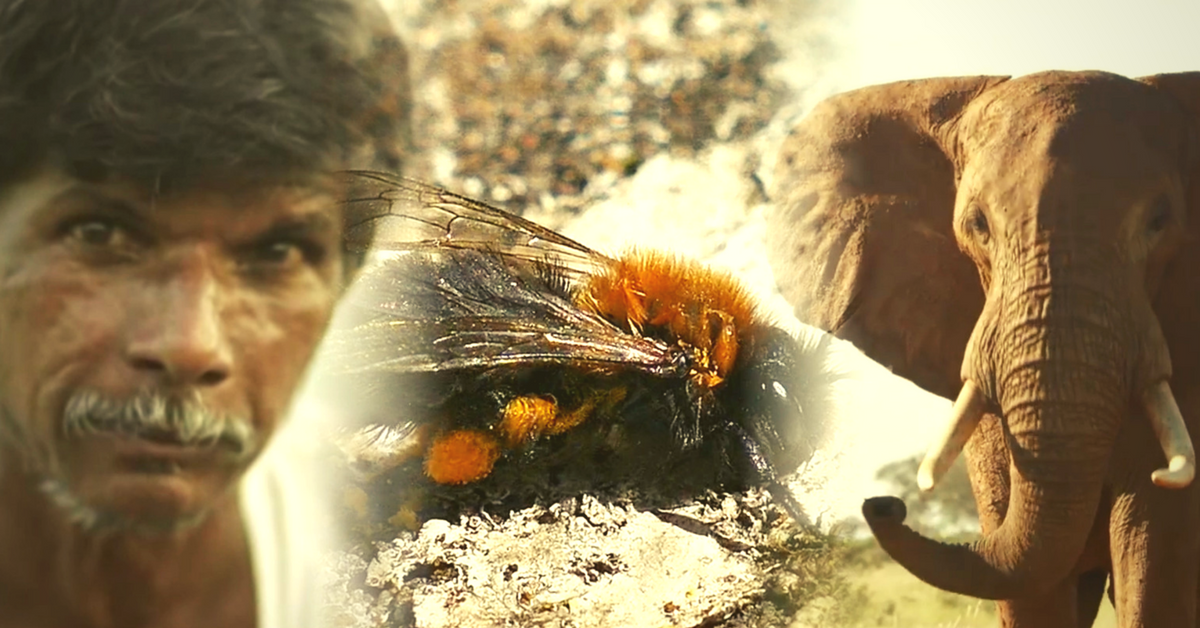VIDEO: This Simple Hack Benefits Bees, Elephants & Farmers
Dr Lucy King from Africa came up with a solution that not only saves elephants and farms but also benefits bees as well.

Farms and crop fields that are near forests regularly have animals entering the terrain. If said animals are elephants, they give farmers more reason to worry than smaller pests.
To prevent larger animals, especially elephants, from entering fields, farmers often have their plantations surrounded with dangerous traps like electric fences that shock, paralyze or even kill trespassing animals.
Dr Lucy King from Africa came up with an ‘Elephants & Bees’ solution, that not only saves these animals and farms but also benefits other parties as well. She replaced electric fences with beehives, and also planted dummy beehives at regular intervals. Some projects under the name also used pre-recorded aggressive bee sounds, and all these methods have proven to be effective.
According to farmers, elephants that miss the hives, tug the surrounding rope ‘fences’ that trigger the nearby hives. The bees from the hives drive the elephant away.
According to K. Gopalakrisna Bhatt, “The beehive fencing has proved to be an effective method to tackle the increasing man-animal conflict, as the raids by the pachyderms have been controlled effectively.” The method has reportedly met with an 80% success rate.
Agricultural Technology Management Agency (ATMA), also took an interest in the project, building a 700m long bee fence in Mathamangalam in Poothadi Grama Panchayat.
The project inadvertently provides a home for displaced bees and is a safer option for elephants and farmers.
Watch the video here:
Like this story? Or have something to share? Write to us: [email protected], or connect with us on Facebook and Twitter (@thebetterindia).
If you found our stories insightful, informative, or even just enjoyable, we invite you to consider making a voluntary payment to support the work we do at The Better India. Your contribution helps us continue producing quality content that educates, inspires, and drives positive change.
Choose one of the payment options below for your contribution-
By paying for the stories you value, you directly contribute to sustaining our efforts focused on making a difference in the world. Together, let’s ensure that impactful stories continue to be told and shared, enriching lives and communities alike.
Thank you for your support. Here are some frequently asked questions you might find helpful to know why you are contributing?


This story made me
-
97
-
121
-
89
-
167













